UNICEF Yemen: Bridging the Gap and Empowering Female Healthcare Workers in Lahj, Yemen
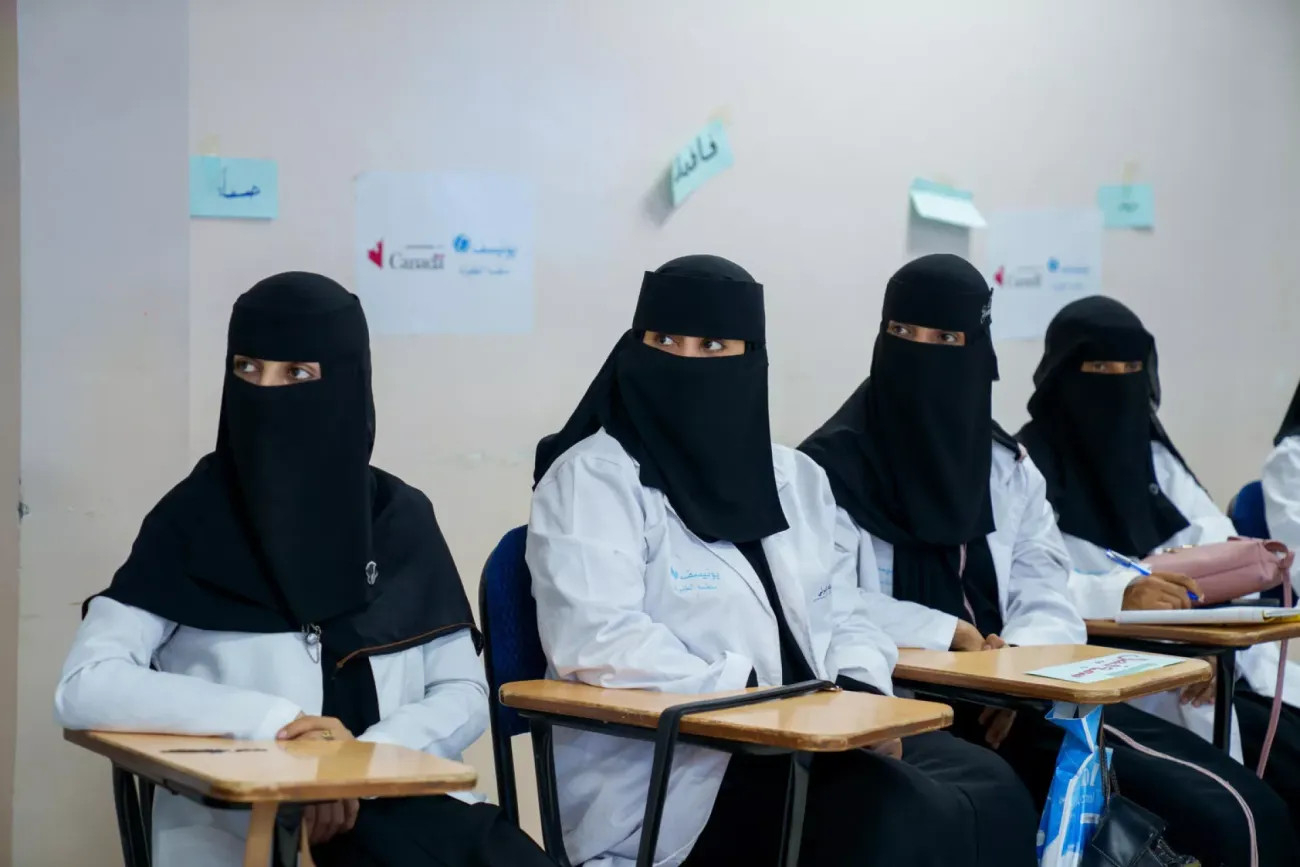
UNICEF is strengthening community health services by empowering 50 community health workers in Lahj Governorate through a series of trainings.
As the health system in Yemen remains on the brink of collapse, UNICEF is strengthening community health services by empowering 50 community health workers in Lahj Governorate through a series of trainings. The female community workers are now equipped with knowledge and skills on vaccine-preventable childhood diseases, health education, coronavirus prevention, as well as care for mothers and newborns to serve as the initial point of contact for people seeking routine medical services and preventive care.
"I joined the training to provide services to the community. Many residents, especially those from remote villages, struggle to reach the health centre due to the difficult terrain and their economic situation,” says Lamia Ali Muhammad Al-Qubati, a 28-year-old dental assistant, who participated in the training programme.
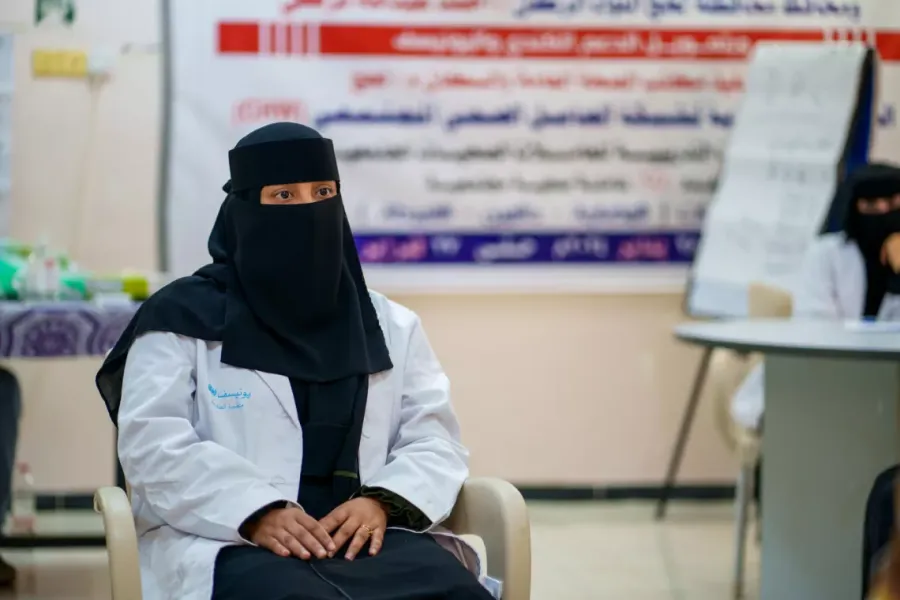
Following the training, the health workers were deployed to conduct awareness raising campaigns to counter vaccine hesitancy and misinformation to promote the prevention of infectious diseases and ensure proper monitoring.
“While we occasionally faced rejection from some in the community, our commitment to providing free awareness and care has yielded positive results. Awareness has increased, people are actively seeking vaccination, and I am dedicated to sharing my new-found knowledge with my community,” said Lamia.
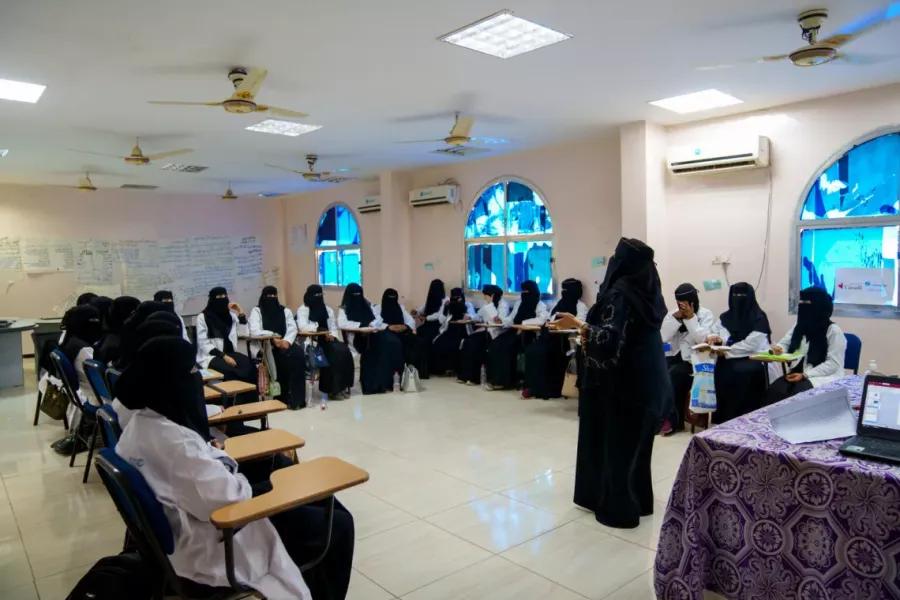
Ibtisam Ahmed Al-Musali, a 38-year-old director of the Health Education and Media Department and a trainer in the community health worker programme said, “The trainees are health workers from various districts within Lahj Governorate, and COVID-19 is a core component of their comprehensive training curriculum. When this epidemic spread, the whole world panicked with fear and uncertainty. However, the development and deployment of vaccines brought a sense of reassurance, in addition to awareness and knowledge of preventative measures.”
“The training will undoubtedly have a positive impact on the society,” she added.
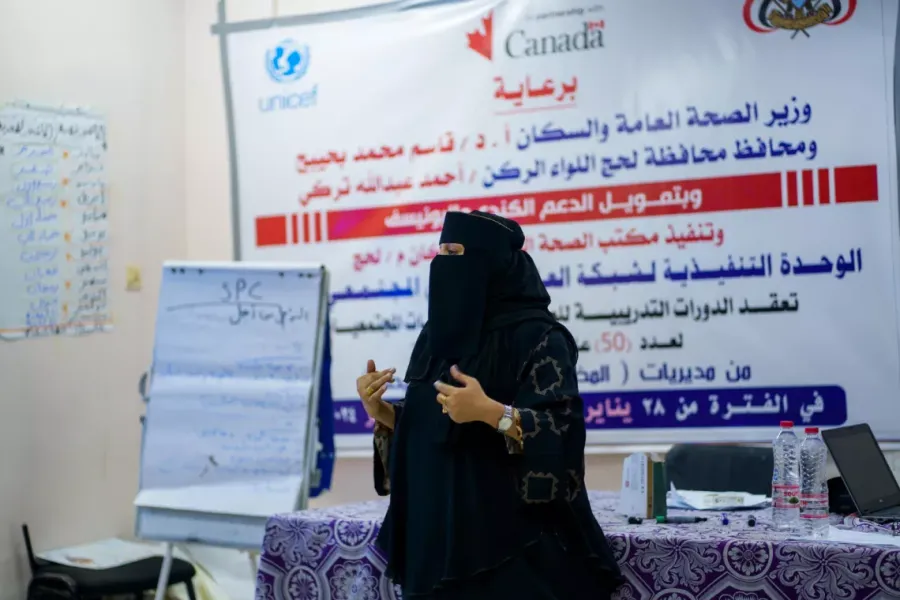
In addition to infection prevention and control (IPC) and the delivery of high-quality healthcare, the comprehensive training programme covered a wide range of topics, including addressing malnutrition endemic among Yemeni women, reproductive health concerns, public awareness and community mobilization strategies, hygiene practices, and in-depth immunization lectures.
Along with the community outreach services by the trained health workers, the UNICEF initiative is also strengthening healthcare services at health facilities at a time when 17.8 million people are requiring health assistance yet only half of all health facilities in the country are either fully or partially functional, according to UN data.
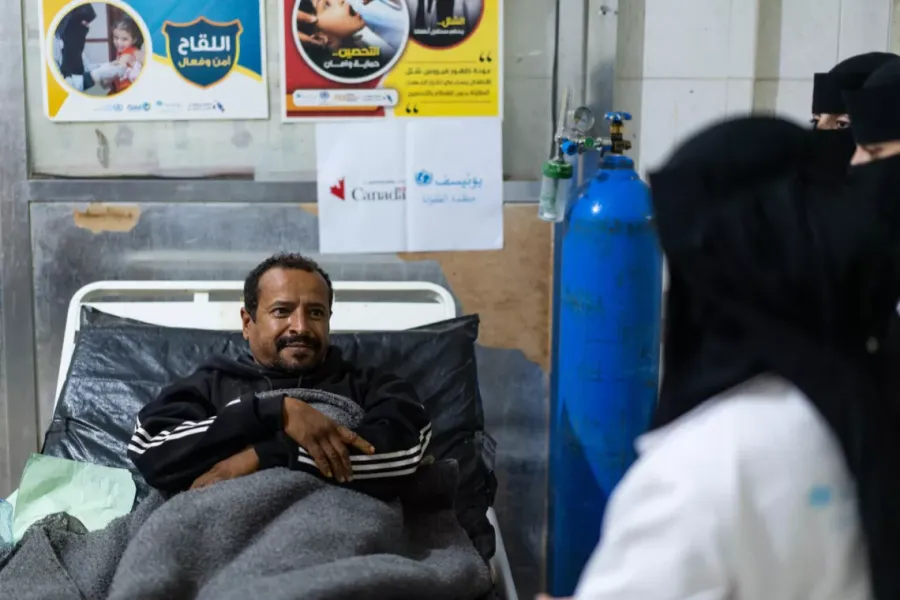
Akram Awad Al-Amoudi, a 49-year-old carpenter from Al Hawtah, a regular patient at Ibn Khaldoon hospital in Lahj was seeking treatment for an enlarged heart at the facility.
“The medical staff is excellent, the cleanliness is impressive, and I received the COVID-19 vaccine to protect myself at the beginning of the pandemic,” said Al-Amoudi, adding that he found the awareness services related to COVID-19 prevention, the role of vaccination and personal hygiene particularly crucial.
Many residents have benefited from UNICEF’s Minimum Service Package provided to primary health centres, through its role in improving the medical supply chain, outreach staff support, and integrative supervision.
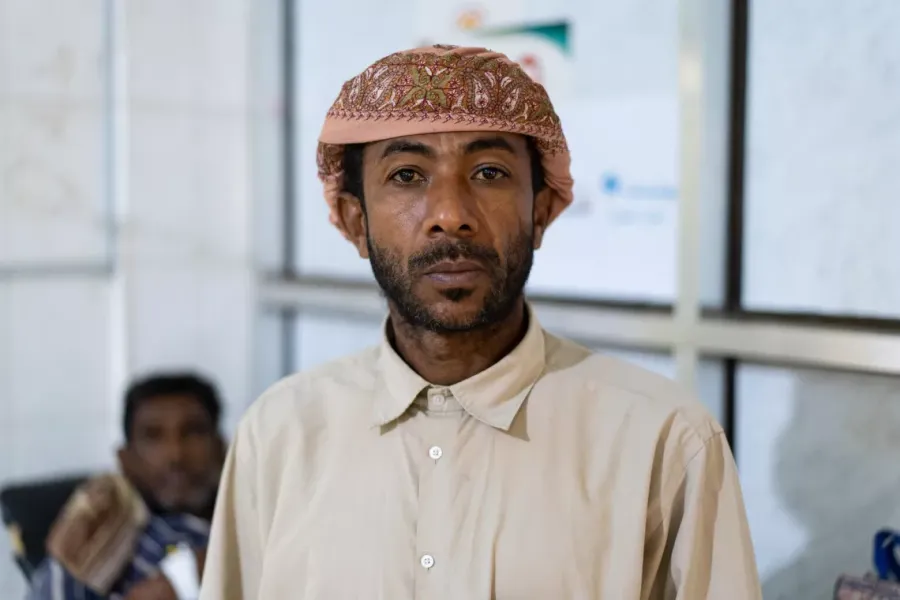
Among the frequent visitors of Ibn Khaldoon hospital is Mahmoud Ahmed Ibrahim, who accompanied his brother, Ayesh, to receive treatment for heart disease and chest fluids at the hospital for some time.
Mahmoud says: “I came with my brother, Ayesh because he suffers from shortness of breath. This hospital provides many services, such as examinations, scouting, and medications.”
Mahmoud also visited the hospital during the outbreak of the COVID-19 pandemic. He received the vaccine and gained awareness about the seriousness of epidemics, and the importance of hygiene in preventing the coronavirus as well as other deadly diseases.
“COVID-19 is fatal if it is not prevented, and we have realized the importance of vaccination even though our region does not have many infections. Community workers came to educate us about the importance of hygiene and the need to take the vaccine.” Mahmoud added.
In a bid to constantly ensure community care, UNICEF with funding from the Global Affairs Canada continues to empower female community health workers and is collaborating with partners to address the healthcare challenges in Yemen. This initiative not only improves access to vital services but also empowers communities to take charge of their well-being and build a healthier future.

